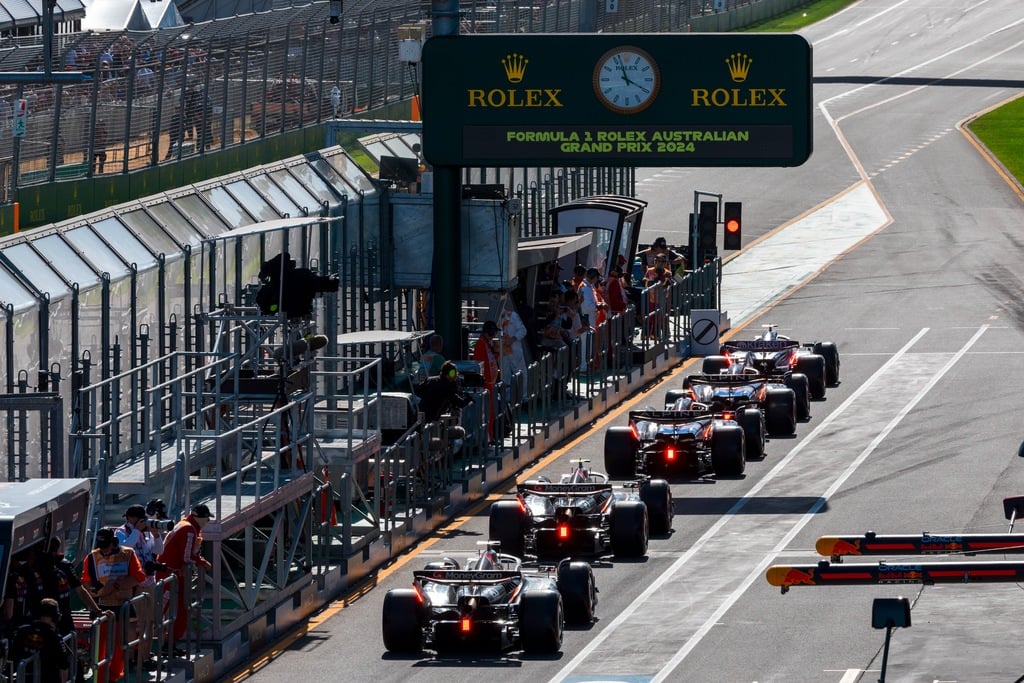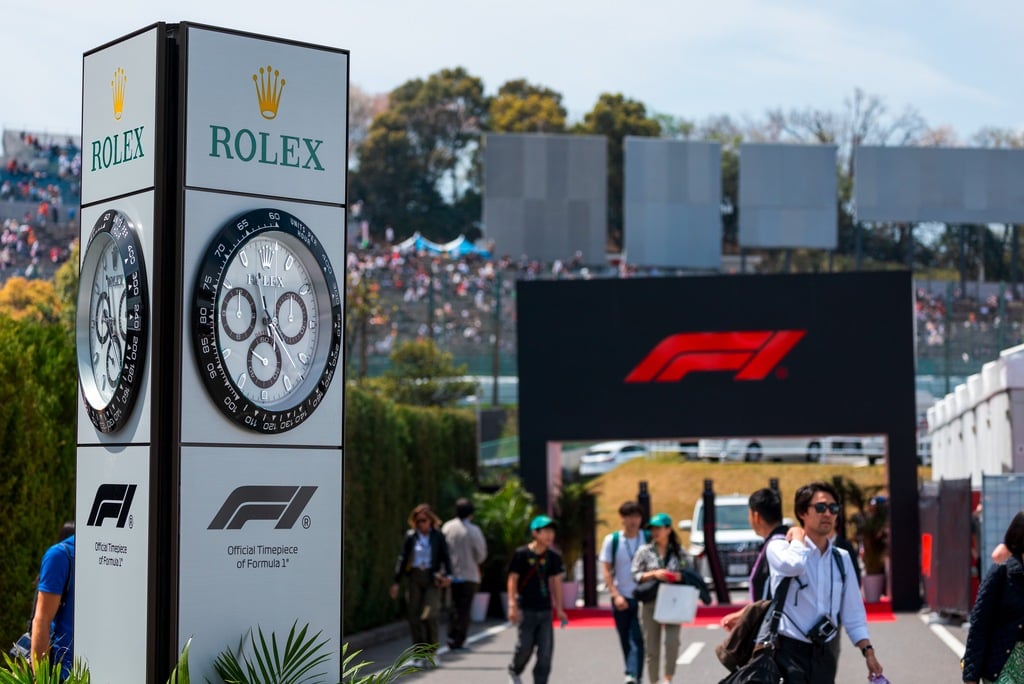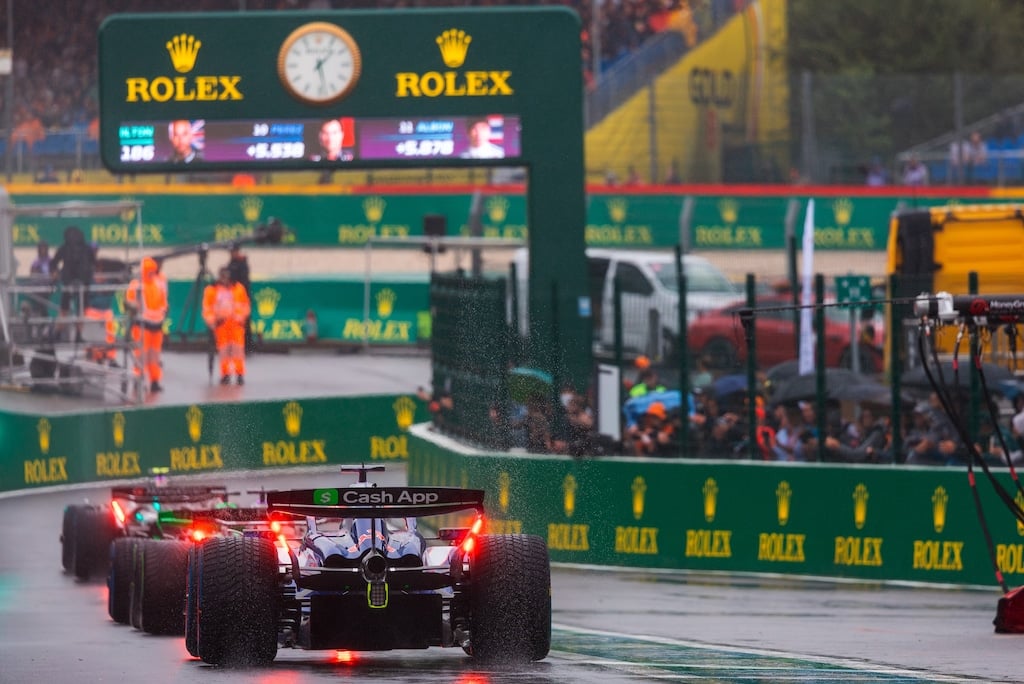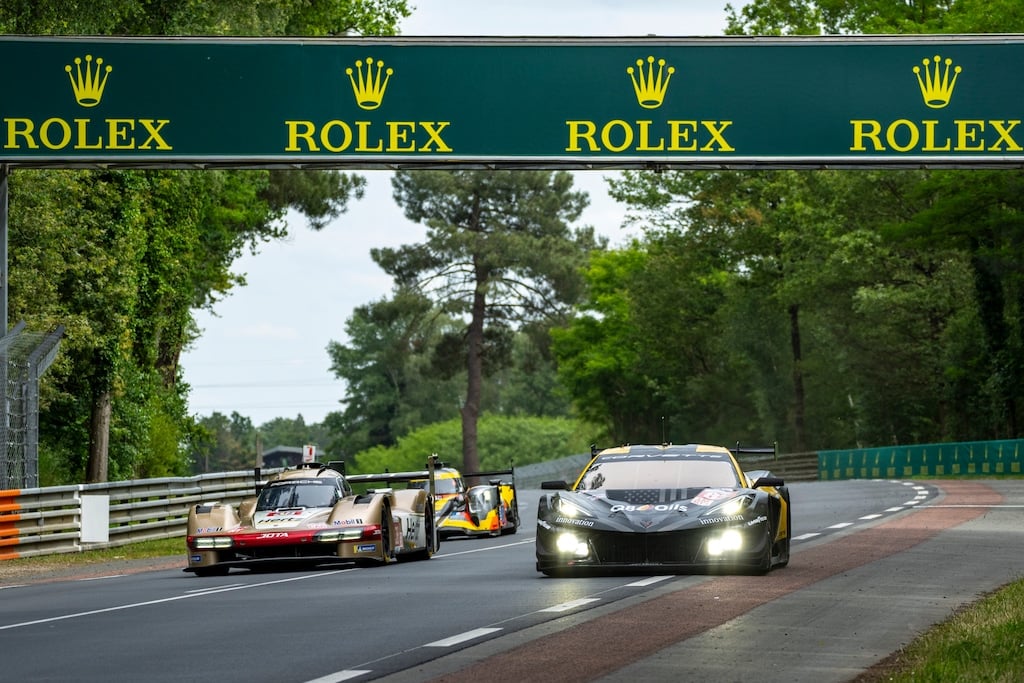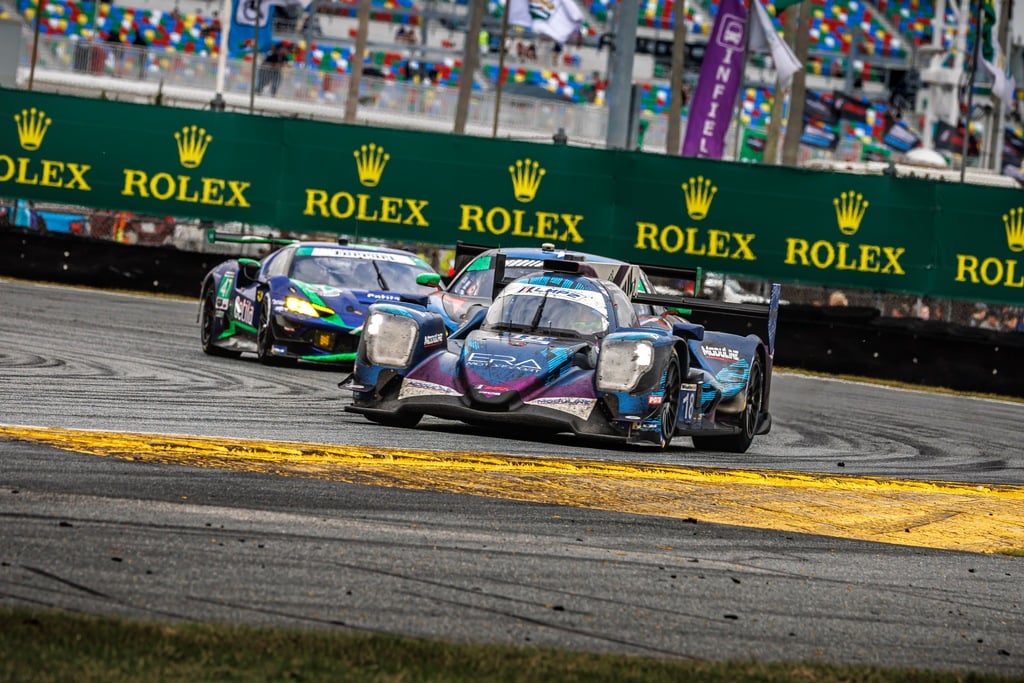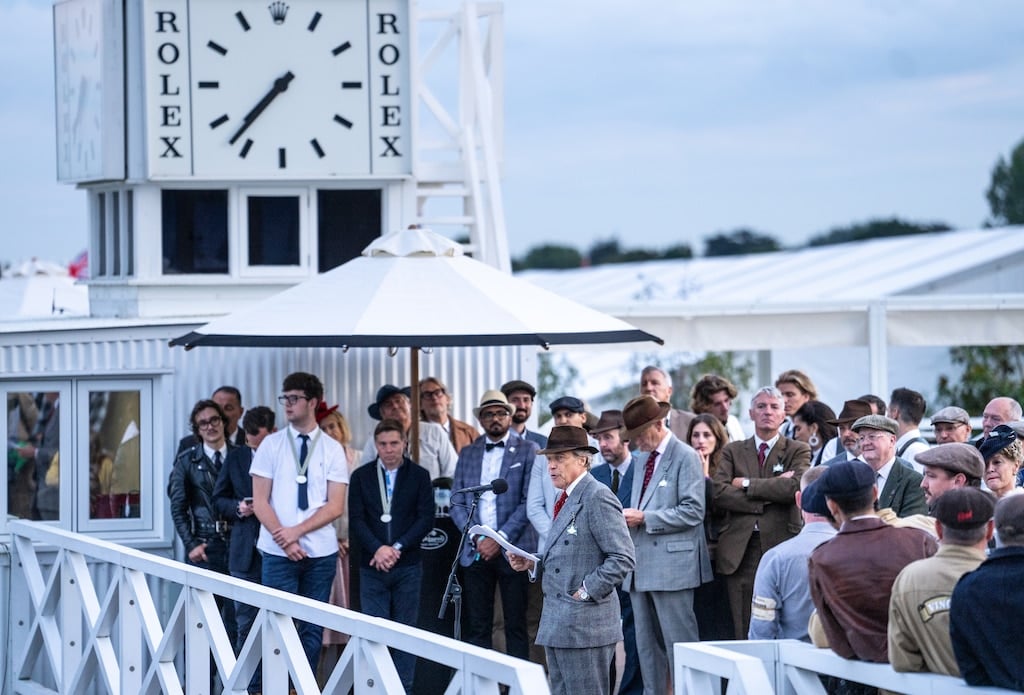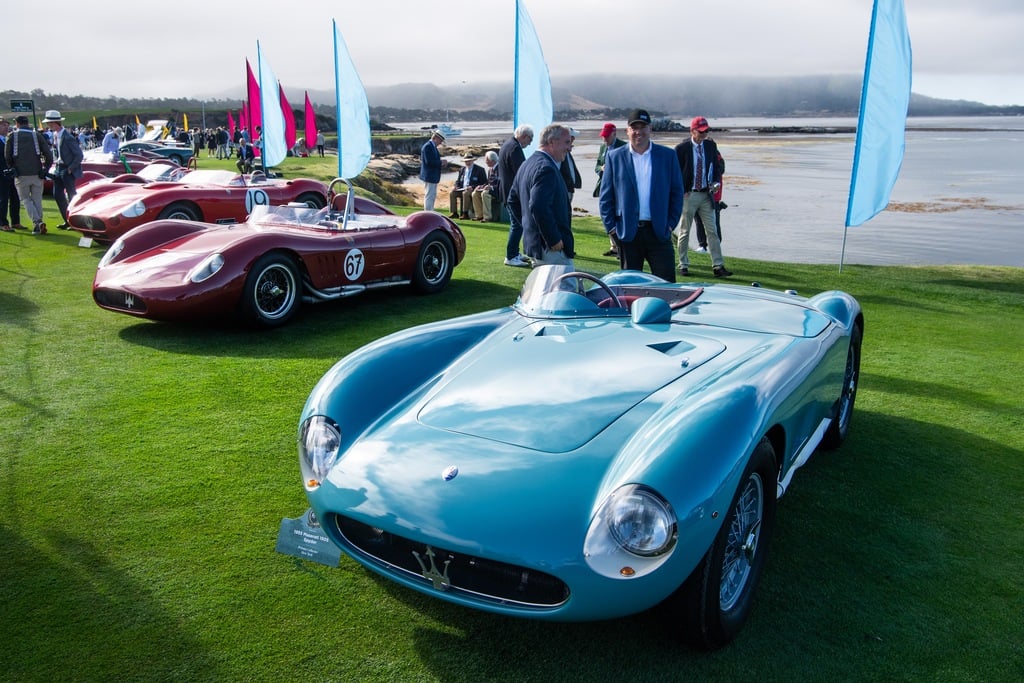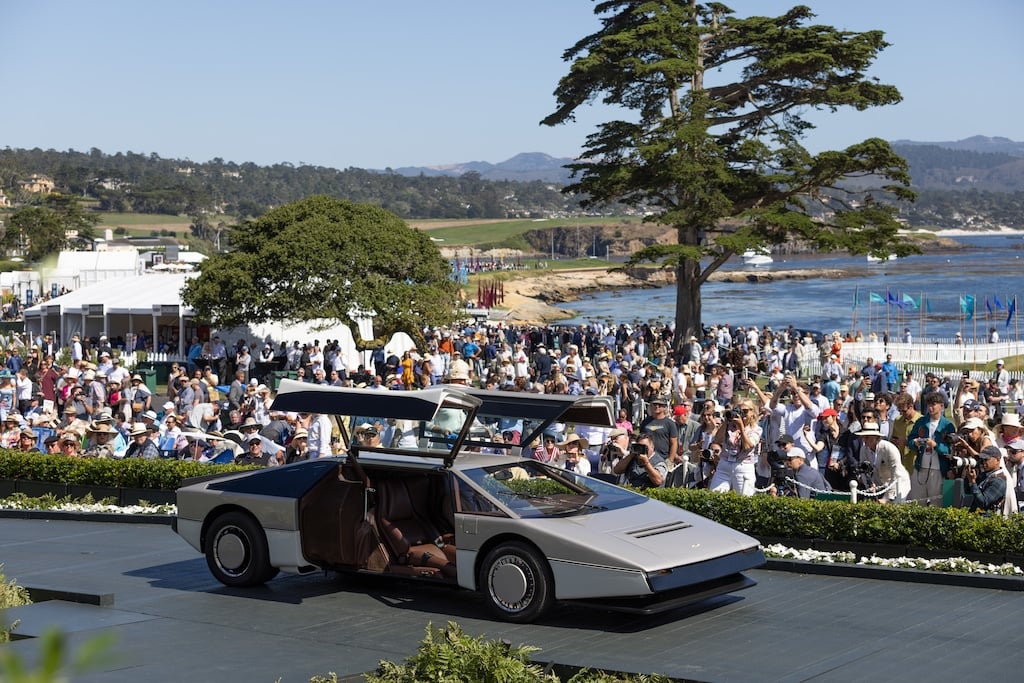Why Rolex Losing Its Formula 1 Sponsorship Role May Be A Long-Term Win
They say money can’t buy you happiness, but pretty much everything else is for sale — especially when you have super deep pockets. LVMH stepping into Formula 1 in 2025 for a rumored annual sum of US$150 million is proof of that. Rolex has sponsored the biggest motorsport circus on Earth since 2011. Initially, the world’s biggest and most famous luxury watch brand paid US$10 million annually, which rose to US$50 million per F1 season. That’s a lot of money, but it’s also three times less than what LVMH is willing to pay to make TAG Heuer the Official Timekeeper. Apparently, Rolex’s CEO Jean-Frédéric Dufour was not amused by Bernard Arnault’s company’s staggeringly high bid. But maybe losing the role of Formula 1’s sponsor may be a long-term win for Rolex.
What do Max Verstappen and Ben Keating have in common? They’re both very successful drivers winning races sponsored by Rolex. Verstappen has, of course, won multiple world championships competing in Formula 1. Keating is an American businessman and gentleman driver — in 2022, he was selected by the World Endurance Championship (WEC) as the Gentleman of the Year. Keating won the 24 Hours Of Le Mans in 2022 and 2023 in the LMP2 class and the 53rd edition of the Rolex 24 Hours Of Daytona in 2015 in a Dodge Viper competing in the GTD class. Almost everybody knows who Max Verstappen is and what Rolex is. Only die-hard motorsport fans have heard of Ben Keating. Maybe it’ll be good if Rolex becomes less like Verstappen and a bit more like Keating. Why? The answer involves words like “passion,” “prestige,” “connoisseurs,” and “taste.”
Losing its Formula 1 sponsorship role may be a long-term win for Rolex
Rolex sponsors the biggest and most famous sporting events in the world — apart from Formula 1, the brand is also present in tennis and golf. Not only that, but the sporting events to which the brand attaches its name are also the most prestigious. When Rolex became the Official Timekeeper of Formula 1 in 2013, the global TV audience was around 450 million. Last year, that number was around the same, but the audience had changed significantly. It is safe to say that the number of hardcore race fans has gone down, and the number of entertainment seekers has gone up.
Stefano Domenicali, who was once the boss of Scuderia Ferrari and now CEO of Formula One Group, a group of companies responsible for promoting F1, said in 2022 that 40% of the people watching Formula 1 are female. That’s a rise of 8% compared to 2017, when American company Liberty Media acquired Formula 1. And not only more women are watching F1, but the audience has also become younger and more culturally diverse.
Social media is to “blame” — and Netflix!
So, Liberty Media and the rise of social media are to “blame” for this. If it weren’t for Liberty Media, it’s highly unlikely that Netflix would present Formula 1: Drive to Survive, a series credited with helping Formula 1 become popular in the USA and rejuvenating the audience and the sport itself. The show kicked off in 2019 and struck the right chord with people stuck in COVID lockdown the year after. It told stories you don’t see when you are trackside or watching a race on television. The different behind-the-scene stories were told with a sensationalist tone of voice to make matters “worse.” Drive to Survive is much like Top Gear. They’re both fun and dynamic shows set in a world with lots of cars, but the shows are actually about people, drama, and sensation.
The story is on the track
Of course, this is a very purist and conservative perspective, but it fits racing fans who don’t need cleverly edited storytelling and petrolheads who feel the story is on the track. Yes, they know about the background stories, but they also care about lap and sector times, tire choices, and aero packages.
A purist F1 fan watching the Netflix series most likely finds it focusing on the wrong aspects of motor racing and sometimes showing events out of context. If so, that same fan may also not be interested in what a plethora of influencers and F1 teams show on YouTube, TikTok, and Tumblr. Interestingly, a study released by Buzz Radar at the end of last year found that people were now more likely to find out about Formula 1 through social media channels (22%) or their family members (21%) than through Drive to Survive (14%).
Liberty Media applies less strict licensing rules than before, making it possible for content creators to post pictures and videos from the paddock on their social media channels. This certainly has an effect. Inviting a food blogger with a million followers to a Grand Prix leads to millions of views and might get “foodies” hooked on F1 too.
#makerolexclassyagain
Trying not to alienate F1 traditionalists will be one of the sport’s biggest challenges over the next decade. This crowd is not into video games or an eSports platform, other Liberty Media activities aimed to reach a new audience. In any case, Rolex won’t be a part of that. And that’s a good thing for the most famous of all luxury watch brands. Why? Because Rolex is, in essence, about quality. And that also means a quality audience that recognizes quality. Rolex doesn’t need more and more people to hear about and desire it. Since Rolex couldn’t produce enough watches to meet demand, prices on the secondary market soared. Rolex CEO Dufour said that viewing luxury watches as investments is dangerous following a surge in interest from speculators during the pandemic. “I don’t like it when people compare watches with stocks. We make products, not investments,” he said.
He didn’t claim the hashtag #makerolexclassyagain, but he did say, “We sell dreams,” in the same interview in the Swiss newspaper Neue Zürcher Zeitung. Although Dufour was upset by the immense LVMH overbid, he could also be happy that Rolex losing the F1 limelight might help people once again perceive his products as dream-worthy watches they want to wear rather than commodities. He’s also likely looking forward to selling these watches to people who value quality over quantity.
High-quality motorsport audiences
A few high-quality motorsport audiences deserve a mention here. For instance, the 113 million race fans sitting in front of their TV sets in 196 countries watching the 2024 edition of the 24 Hours of Le Mans race. Yes, it was a record-breaking figure for an event Rolex was already part of, but it was also a quality audience. The 24 Hours of Le Mans is pure sports car mythology. And it won’t come as a surprise that Rolex sponsors the event.
Another endurance race the brand from Geneva is a partner of is the 24 Hours of Daytona. This is the race that gave the most coveted chronograph in the world its name. Here’s a fun and, for some, familiar fact: the winners in the different classes racing the 24 Hours of Le Mans and 24 Hours of Daytona get a Rolex Daytona, but they’re different references. A steel 126500LN with a special engraving on the case back goes to the race winners in France, and a two-tone 126503 goes to the winning drivers in flashy Florida, USA; how appropriate!
The triple crown of endurance racing comprises the 24-hour races held in Le Mans and Daytona and the 12 Hours of Sebring. And guess what? Rolex is the Official Timepiece of the 12 Hours of Sebring. The brand is also a partner of the FIA World Endurance Championship and the legendary Daytona International Speedway.
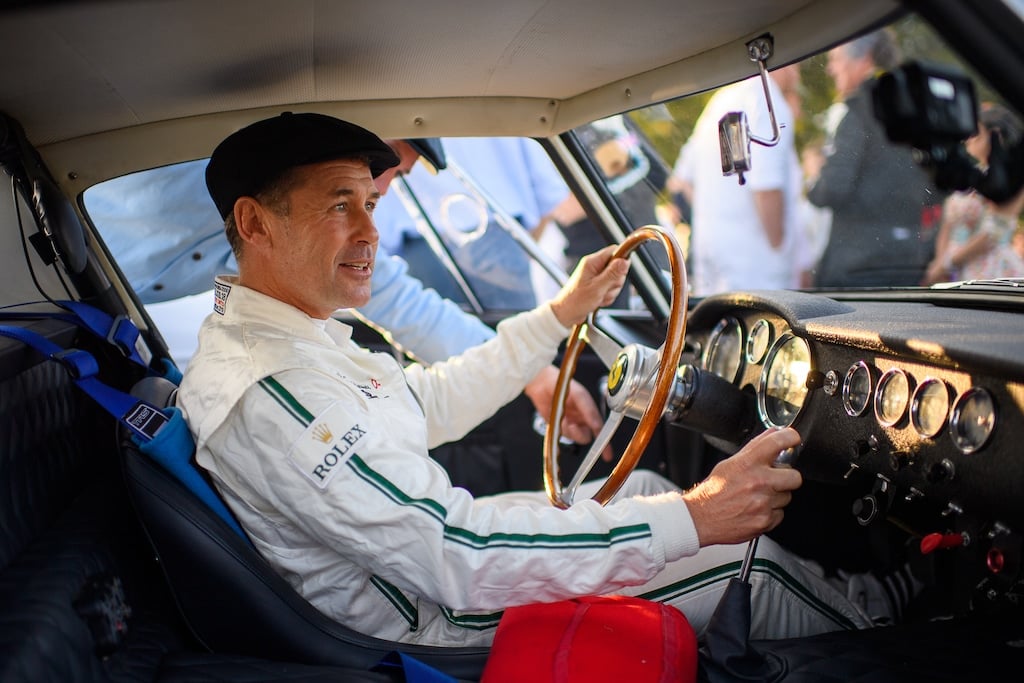
Rolex Testimonee Tom Kristensen is the only person to win the prestigious 24 Hours of Le Mans nine times, six of which were consecutive.
The spirit of motorsport
Endurance racing is mythical not just because of the racing but also the drivers. Both sports car racing and Formula 1 racing are glamorous, but Formula 1 has always had a bit more of a playboy-like vibe than the gentlemanly atmosphere of sports car racing. That makes sense from an amateur psychiatrist’s perspective. Formula 1 cars are open-wheeled (extroverted), while sports cars are closed-wheeled (introverted).
Sports car racing is also the world of “gentleman drivers.” A gentleman driver often buys the car, has a team of specialists prepare and support it, and sponsors professional drivers to cover part of the costs. This combination benefits both the costs and the results. Gentleman drivers are often successful entrepreneurs who can afford to live their boyhood dream.
I mentioned Ben Keating, but there are plenty more of these guys who didn’t race professionally when they wanted to but became respected amateur drivers because they could fund it with the money made as professionals in other fields. Think not just of successful business guys but actors as well. Paul Newman is the most famous Hollywood star with a passion for racing, and Patrick Dempsey (Doctor McDreamy from the Grey’s Anatomy television show) is the most recent one.
This is the crowd Rolex should hang with
Just as Dufour wants people to spend money on dreams they can wear, gentleman drivers spend money on motorsports out of passion and to make a dream come true, not to make money from an investment. And just as Rolex is a patron of the arts, gentleman drivers greatly support motorsport. Besides the great match between competitors and sponsor Rolex, the link with the audience is also there. The people who love sports car racing are generally in it for the sport, not the sensation. And they’re loyal, dedicated, involved, knowledgeable, and passionate. The spirit between the drivers, the crowd, and the sponsor overlaps and connects.
What to do with US$50 million?
There are more automotive events that Rolex is already involved in, and these are where the brand can spend its freed-up US$50 million budget to have a deeper, not bigger, impact. There’s the Goodwood Revival, for instance. It’s an event comprising 16 races held over three days, each featuring sports cars built between 1930 and 1966. The Goodwood Revival is a meeting place for affluent, influential, and ardent motoring enthusiasts. Visitors dress in period-correct attire and come to watch classic and often priceless vintage race cars being driven to the absolute limit by amateur and professional drivers with smiles on their faces.
The annual event is a jolly good show. Classic, analog cars are a great match for mechanical watches. Nobody needs to race a vintage Jaguar E-Type or own a Datejust. Still, if you can appreciate the craftsmanship, tradition, and style of the car and/or watch, you might want to experience these carefully crafted creations. Rolex has been the Official Timekeeper of the Goodwood Revival for 20 years and supports the Drivers’ Club, the driving force behind the three-day car festival. With some extra budget from Rolex, the event could be lifted to an even higher level in terms of quality.
Money can’t buy you class
Two other Rolex-backed car events that ooze passion and class are the Pebble Beach Concours d’Elegance and the Pebble Beach Tour d’Elegance. Rolex has been the Official Timepiece of the Concours, which has drawn a fine selection of the world’s best vintage cars to the Pebble Beach Golf Links, overlooking Carmel Bay in California, since 1997. Rolex has also been the Official Timepiece of the Pebble Beach Tour d’Elegance and its Presenting Partner since 2007. Yes, there is a Pebble Beach Concours d’Elegance YouTube channel, but it only has 22.6K subscribers, and there’s no sensational Netflix series about the event in the making.
Money can’t buy you style, taste, or class. However, the dollars Rolex spends by backing both Pebble Beach events do cause their grace and prestige to rub off on the brand. Formula 1 is, and probably will forever be, the biggest show in motorsport. Rolex is, and probably will forever be, the biggest name in luxury watchmaking. It’s the exclusive “luxury” component that Rolex can focus on after losing the sponsorship role of an event for the masses.
Let Tudor, as the sponsor of the Red Bull-owned Visa Cash App RB Formula One Team, talk to the 450 million F1 watchers. Rolex can leave the world of energy drinks behind with its head held high. After it has cleansed its palate, the brand can fully focus and enjoy the more wholesome flavors in other motorsport classes. It’s a classy move and maybe also a long-term victory. We might not even need the #makerolexclassyagain campaign.


